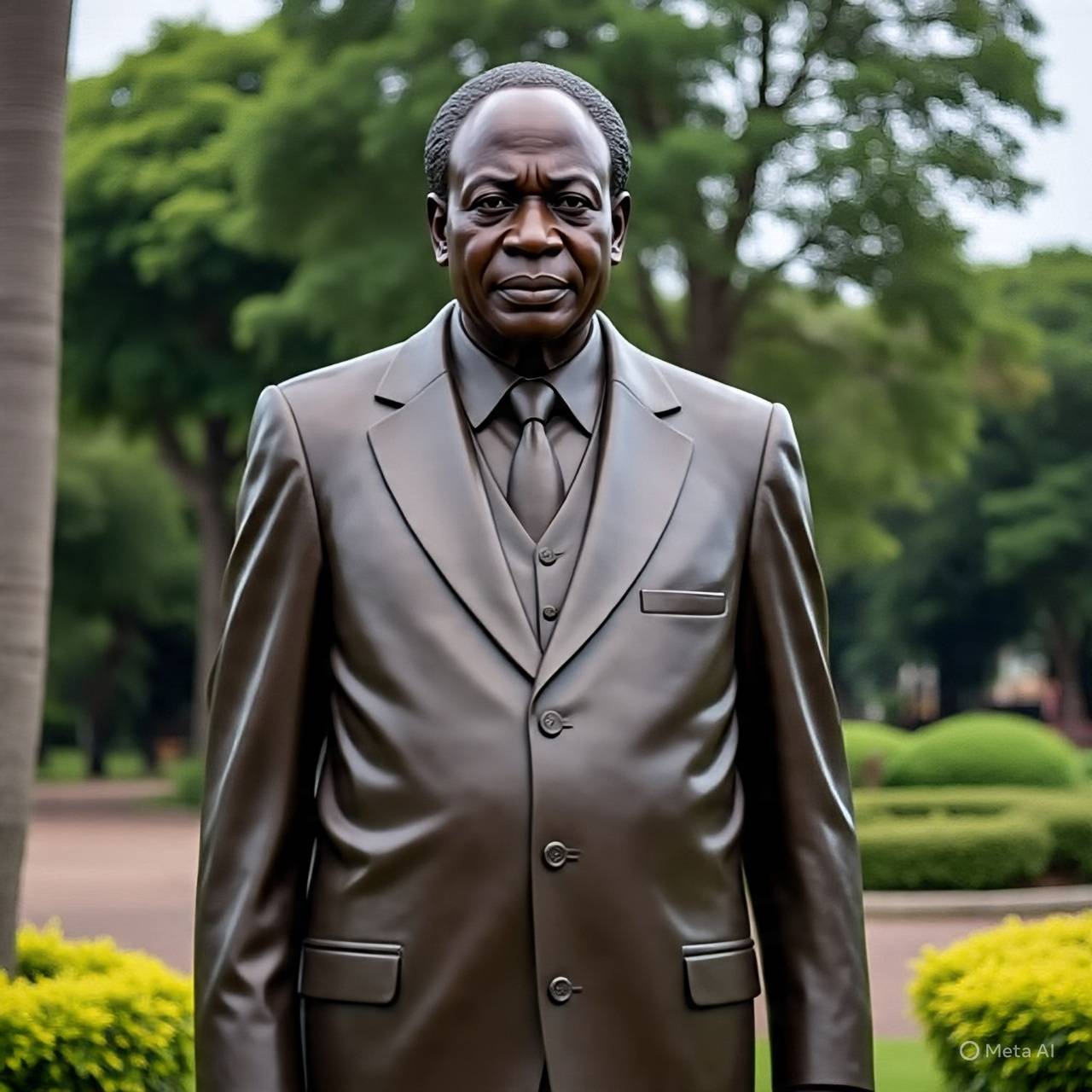Kwame Nkrumah was a pivotal Ghanaian leader who played a key role in Ghana's independence from British colonial rule in 1957. He was Ghana's first president and a prominent advocate for Pan-Africanism, pushing for African independence
Kwame Nkrumah was a pivotal Ghanaian leader who played a key role in Ghana's independence from British colonial rule in 1957. He was Ghana's first president and a prominent advocate for Pan-Africanism, pushing for unity among African nations. Nkrumah's vision emphasized African liberation and economic self-sufficiency. His legacy remains significant in Ghana and across Africa.The man that strive for peaceful Coexistence across Africa .Kwame Nkrumah's impact extends beyond Ghana's borders, shaping discussions on African unity and development. Key aspects of his leadership and ideology include:
Pan-Africanism: Nkrumah championed unity among African states, advocating for collective strength and cooperation.
Independence: Led Ghana to independence on March 6, 1957, making it a beacon for other African nations.
Economic Vision: Focused on industrialization and self-reliance for Ghana and Africa.
Political Philosophy: His ideas blended socialism with African communal traditions.
Legacy: Memorials like statues and the Kwame Nkrumah Memorial Park in Accra honor his contributions.
His thoughts on African unity and liberation continue to influence thinkers and leaders.
People call him the man of good well and peace
Kwame Nkrumah's legacy is multifaceted and profound, touching various aspects of Ghanaian and African development.
Key Aspects of Nkrumah's Vision and Leadership
Pan-Africanism: Nkrumah was a staunch advocate for African unity, believing it was crucial for economic and political development. His efforts led to the formation of the Organization of African Unity (OAU) in 1963, which later evolved into the African Union .
Anti-Colonialism: He championed independence and self-determination for African nations, leading Ghana to become the first sub-Saharan country to gain independence in 1957.
Economic Self-Sufficiency: Nkrumah emphasized industrialization and economic independence, initiating projects like Tema Harbour and establishing over 100 state enterprises.
Education and Science: He invested in education, founding institutions like the Kwame Nkrumah University of Science and Technology (KNUST) and pursuing ambitious scientific projects, including a nuclear research reactor at Kwabenya .
Infrastructure Development*: Nkrumah oversaw significant infrastructure growth, including roads (like the Tema Motorway), railways, and healthcare facilities expansion .
Impact and Legacy
Inspiration: Nkrumah's vision continues to inspire African leaders and movements focused on unity, liberation, and development.
Challenges: His presidency faced critiques, including economic mismanagement and political instability, culminating in a CIA-backed coup in 1966.
Relevance Today: Discussions around Nkrumah's ideas on Pan-Africanism, economic independence, and science/technology remain pertinent in contemporary Ghana and Africa .
Commemoration and Recognition
September 21: Celebrated as Kwame Nkrumah Memorial Day in Ghana, marking his birthday.
Memorials: Structures like the Kwame Nkrumah Memorial Park in Accra honor his contributions
. |


